Why Is My Husky Sad? [Depressed Husky + Photos]
Slender, muscular, and regal, Siberian Huskies are the primo athletes of the canine world. Bred originally to run for many miles over long distances pulling weight, this medium, thick-coated dog breed has exceptional stamina.
Huskies are known to be high-energy dogs that need loads of exercise a day. Gentle and playful, this breed is good with children and other animals but, like any dog, needs to be exercised and socialized.
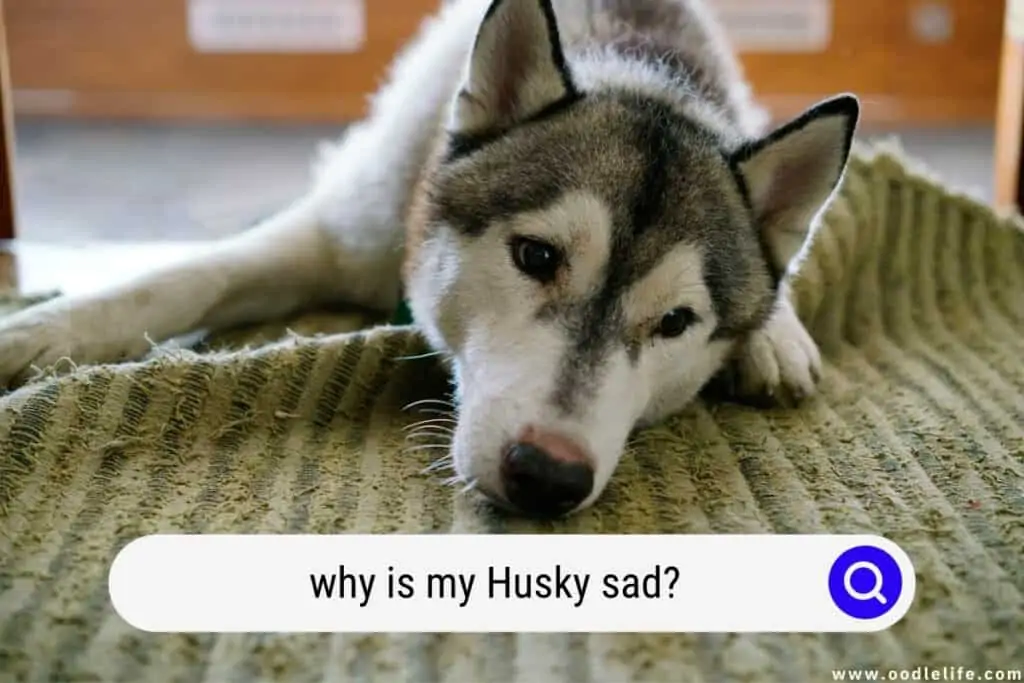
Like humans, dogs are prone to days of the “blahs,” looking lethargic and lacking energy. As Huskies are hugely active dogs, the day your Husky becomes a lackluster couch potato might be the day you’ll have to examine what’s bothering your beloved pooch.
Signs of Depression in a Husky
Huskies are happy-go-lucky, playful dogs that like to play. So understandably, when they go through a period of being blue, the behavior change is drastic and apparent.
Dogs, like people, suffer from depression, and their symptoms are remarkably similar to ours. Dogs’ behavior is affected by their moods in the same way as ours is, so if your dog appears sad or anxious with little or no interaction, you should investigate whether your dog is depressed.
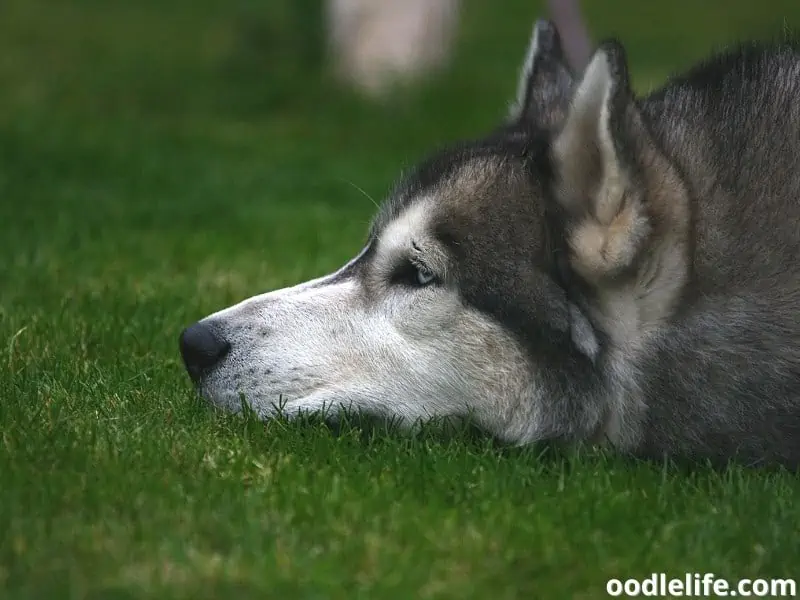
Here are a few signs that might indicate your Husky is feeling a little down.
1. A Lack of Motivation or Energy
This one is quite similar to ours, and it is also a key symptom of depression in dogs. If your Husky shows a significant change of lack of interest in things they used to enjoy, such as playtime and going for walks, it’s time to take action.
This could be visible evidence if your Husky is lying on their bed or couch all day, refusing to move, even for the promise of walks or food.
2. Sleeping Schedule
Sleeping excessively and the reluctance to get up are other symptoms of depression.
If you observe your Husky sleeping on the couch, bed, or floor, even when you try to play with them or tell them it’s their walk time, they might ignore you and just lie there, barely looking at you. This is the most significant indication that something is wrong, whether it’s depression or something else.
3. Lack of Appetite
Most dogs love food, and Huskies are no different. A dog’s lack of appetite can be a symptom of depression. If your dog isn’t interested in his food, it’s essential to take him to the vet to rule out any medical causes.
If there are no medical problems, then it’s possible that your dog is depressed. Dogs can become depressed just like people do, and they may show similar symptoms like a distinct lack of appetite or interest in food, even their favorite snacks.
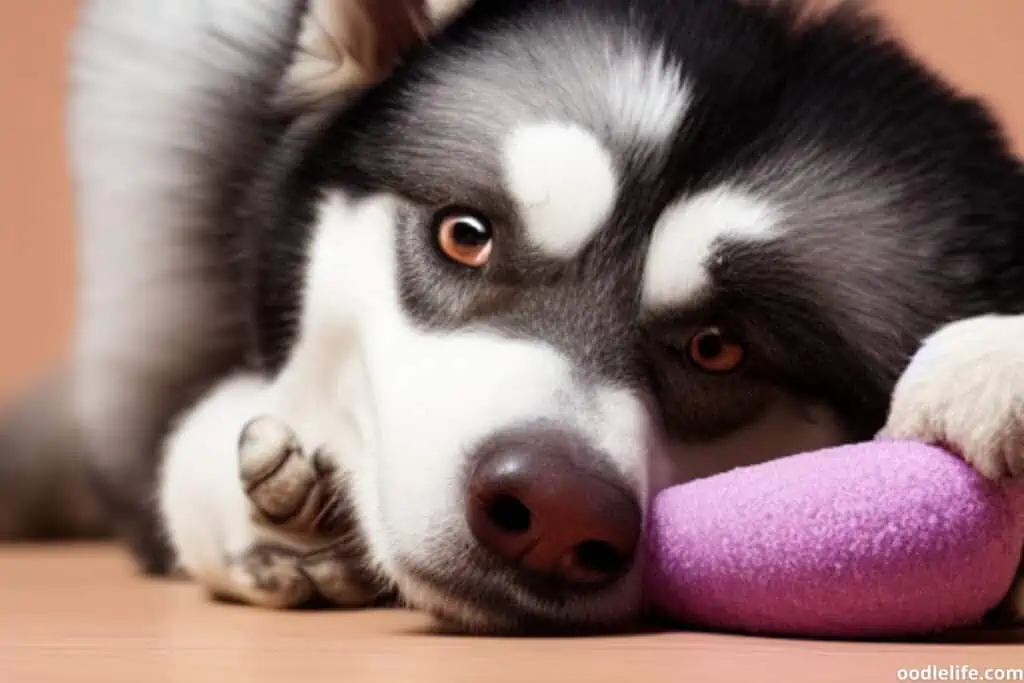
Why Your Husky Might Be Sad?
1. Lack of Affection
Huskies love getting attention, and if you are a busy Husky parent, you might unknowingly be neglecting your attention-demanding Husky. Keep an eye out for the warning signals, like vocalizing their displeasure in their distinct “woo-wooing” way or howling.
In addition, Huskies are playful pooches that can suffer from a lack of playtime. Keep a bunch of toys around if you cannot be present all the time, and keep your Husky mentally stimulated. Interactive dog balls that dispense treats are great to keep them occupied for a short period, or a Kong stuffed with frozen peanut butter.

2. Rivalry
Like many dogs, Huskies like being the center of attention and can feel threatened or insecure when a new arrival comes, whether it is a new infant or pet.
Rivalry is often thought of as a human emotion, but dogs can certainly feel rivalry as well. This is most commonly seen between siblings or dogs that live close to each other, as they compete for attention and resources.
Rivalry can manifest itself in different ways, such as physical aggression, resource guarding, or excessive vocalization. While it may be natural for dogs to feel rivalry, providing them with plenty of space and attention is crucial to avoid triggering negative behaviors.
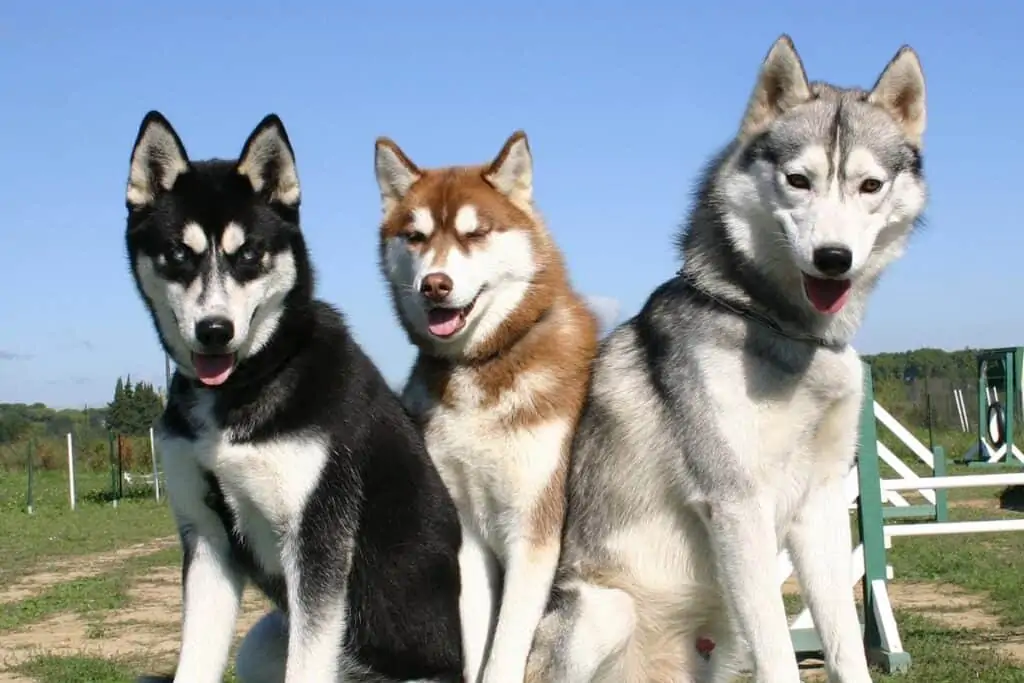
3. Inadequate Physical Activity
Huskies require an incredible amount of exercise every day. Their genetically predisposed stamina makes them extremely difficult to tire out, even for owners that run many miles a day.
They will not be content with a leisurely stroll around the block and would require a vigorous game of fetch or a long run.
When a Husky is under-stimulated physically, he may exhibit behavioral problems and seem to be sad and depressed.
Lack of exercise impacts your Husky’s health in several ways.
- Undisciplined behavior
- Increased Weight
- Chewing and digging
- Excessively howling or vocalization
- Anxiety
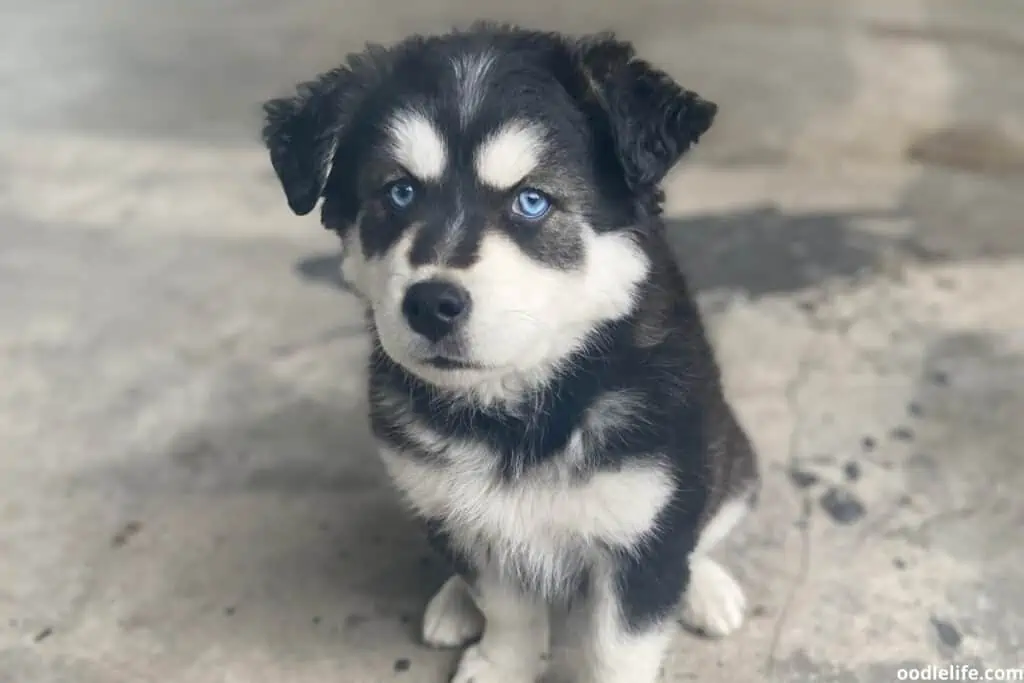
4. Sickness or Injury
Your Husky’s gloominess could be due to being sick. While some sickness is unavoidable, you might want to take a quick trip to the vet to rule out any more severe illnesses like:
- Skin conditions
- Cardiovascular disease
- Infections
- Digestive upsets
In addition, Huskies are active dogs that love to run and jump, making them susceptible to injury and stress on the joints, especially as they are.
Like humans, any dog feeling under the weather is likely to exhibit symptoms of depression and sadness. However, if these symptoms persist for extended periods, you might want to check with a vet.
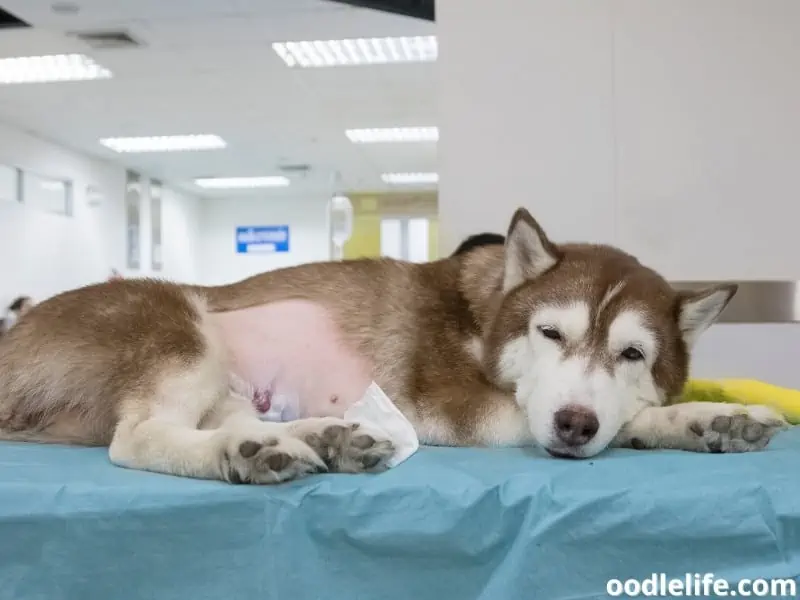
5. Inadequate Nutrition
Like any athlete, Huskies need specific nutrition that differs from dogs that are low-energy couch potatoes.
Ideally, Huskies should eat a diet that is high in protein and fat and low in carbohydrates. This type of diet helps to keep their energy levels up and their fur healthy. Always feed top-quality food with no cheap fillers like grain, soy, and corn.
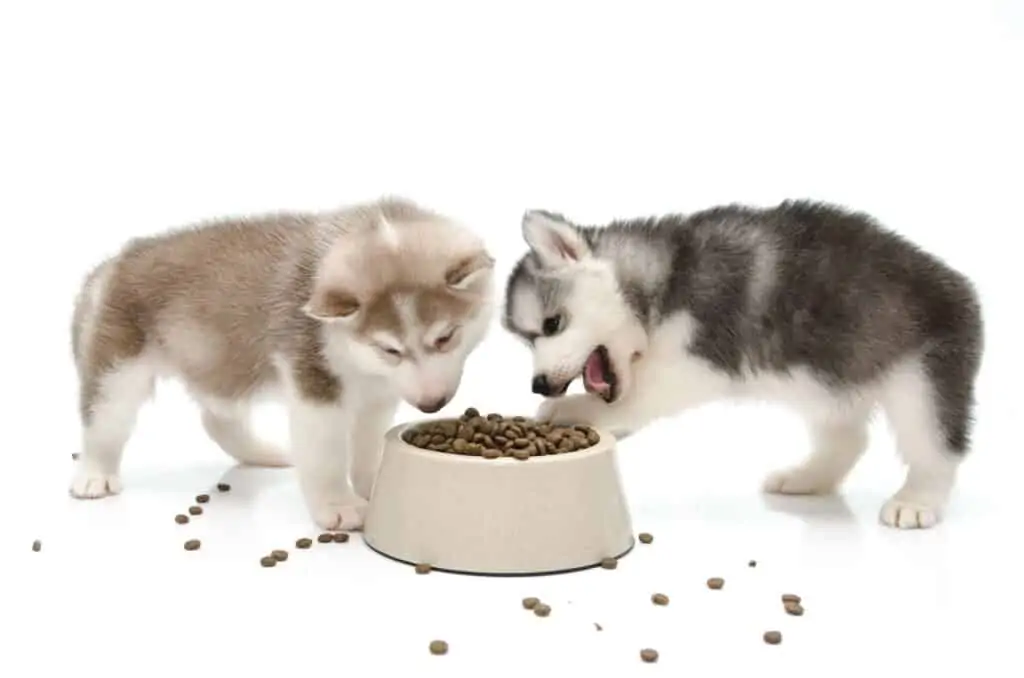
6. Sudden Environmental or Routine Change
Have you recently relocated? If there is a drastic change in your household, like you relocating or someone moving out, your Husky might be in the doldrums because dogs like routine.
A regular schedule will keep your Husky happy and content, while a slight modification in routine might upset your dog and cause a temporary shift in personality. This should ease with time, but if symptoms persist, you might want to look at other potential underlying causes.
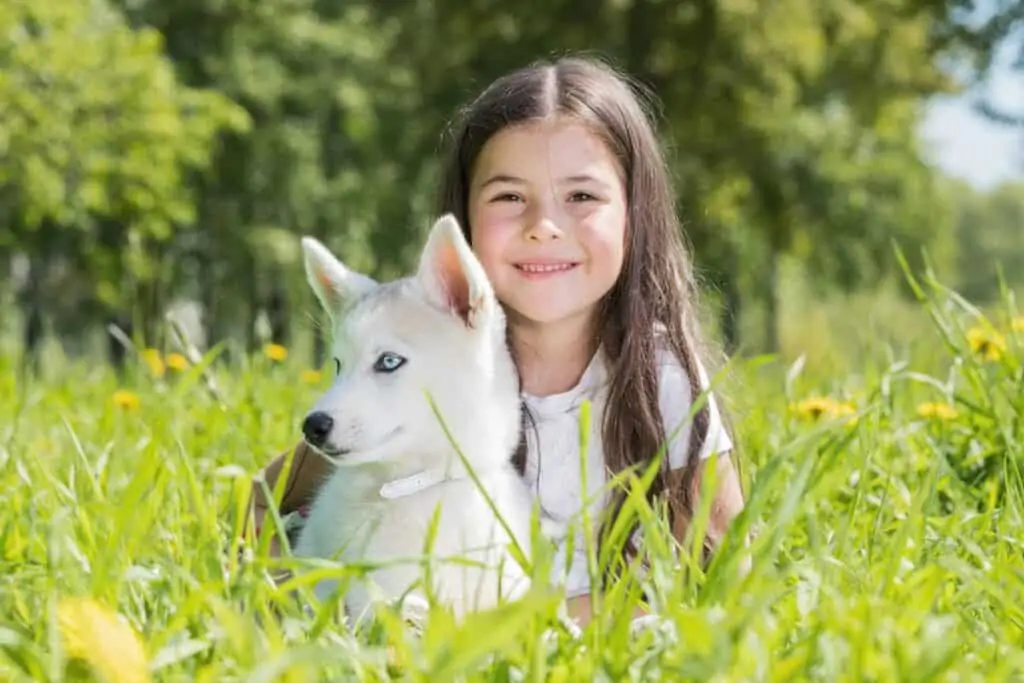
How To Cheer My Husky Up?
We love our dogs, and of course, it pains us to see them glum and sad.
Go For Fun Activities
You can do a few things to cheer your Husky up and potentially snap them out of the gloom.
- Make a connection with your Husky and show them some love. Think – loads of cuddles!
- A quick trip to the vet might help rule out any medical problem.
- Allow them to interact with positive people and other dogs. Bring them to the dog park or some other place where other dogs are playing, and they might be able to find some motivation
- Keep them engaged with activities like running and hiking
- Go on a car ride. Nothing beats the windows slightly down and fresh air in your face to make things all better!
- Allow them to go out into the water. While many Huskies don’t like water, nothing beats a day out at the beach!
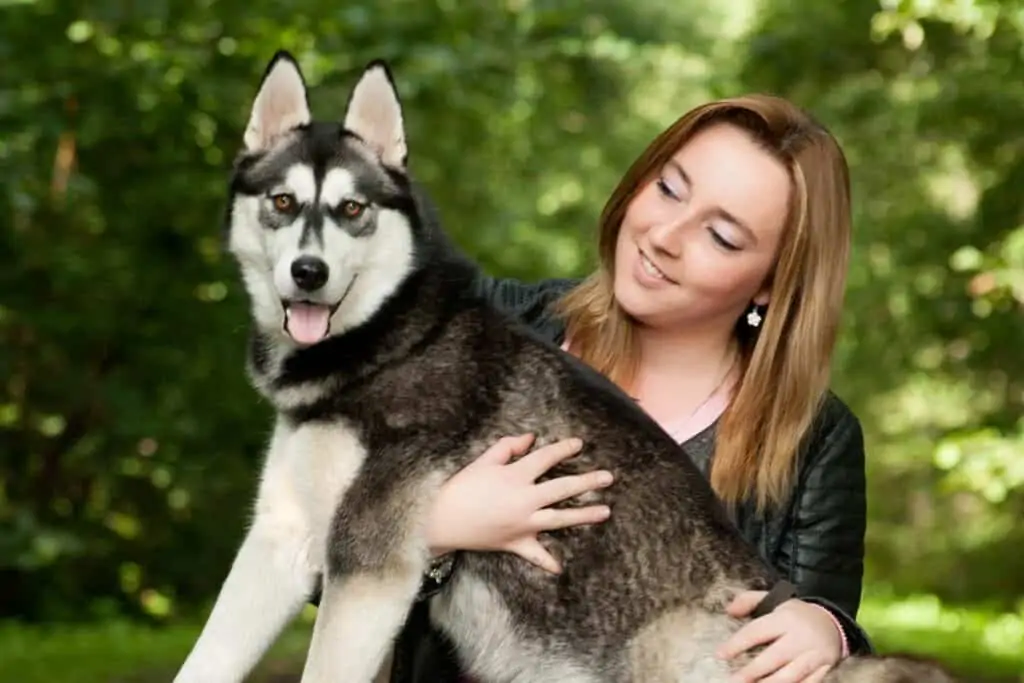
Medications
Try as you might, your Husky might still refuse to snap out of the doldrums. Not only is it painful to see your beloved pooch suffering, but it also might be detrimental to his health if he stops eating, moving, and continues sleeping excessively with no interest in doing anything.
While there are many different medications that can be used to treat depression in dogs, some pet owners prefer to use natural remedies.
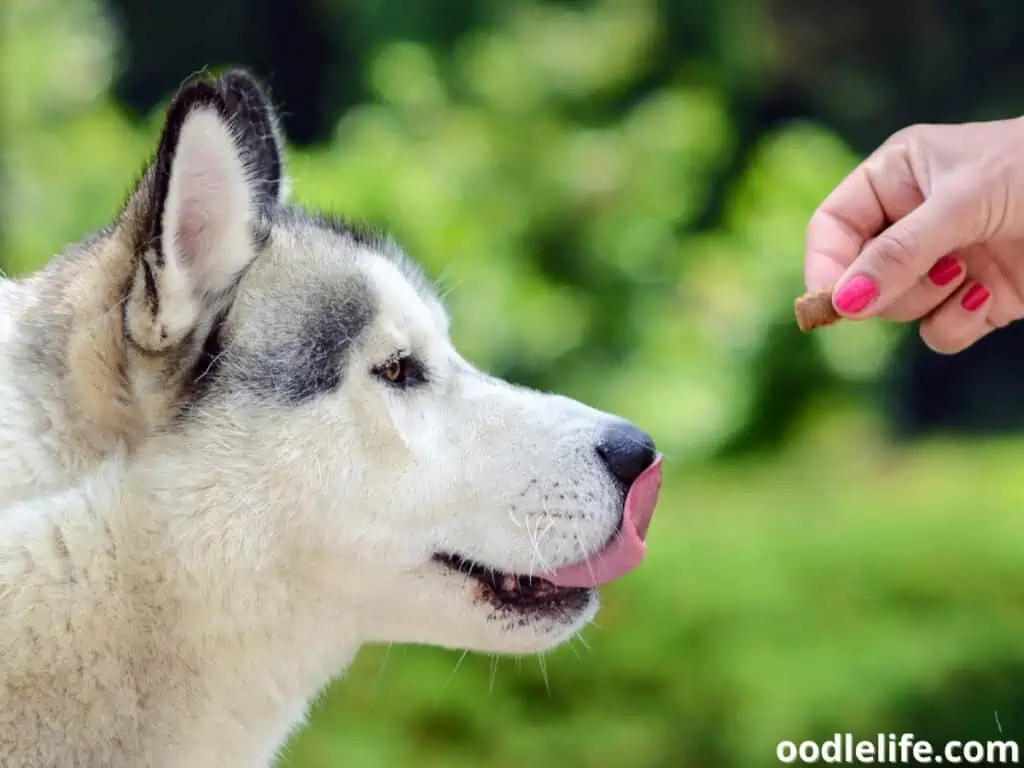
Natural Cures
A few different herbs have been shown to be effective in treating depression in dogs. St. John’s Wort is one of the most commonly used herbs for this purpose. It works by increasing serotonin levels, a neurotransmitter that plays a vital role in mood regulation.
Another option is SAM-e, a compound that is naturally produced by the body and helps maintain healthy brain function. SAM-e supplements can be given to dogs to help relieve symptoms of depression.
Finally, omega-3 fatty acids have also been shown to be beneficial for dogs suffering from depression. These nutrients play an essential role in brain health and can help to improve mood and reduce anxiety.
Prescription Medications
If you think your dog might be severely depressed, talk to your vet for prescription medication. There are a variety of options out there, so it’s essential to find one that works well for your dog. With the proper medication, your dog can be a bouncing bundle of joy again in no time.
Final Thoughts
Your Husky may be sad for several reasons. Maybe he’s not getting enough exercise, or he’s been left alone for too long. Maybe he’s missed his favorite person, or he’s just not getting the same attention he used to.
Whatever the reason, you can do a few things to help your dog feel better. Spend some extra time playing with him, or take him for a longer walk. Make sure he has plenty of toys and bones to chew on.
And most importantly, show him lots of love and affection. With a bit of patience and effort, you can help your dog find happiness again!